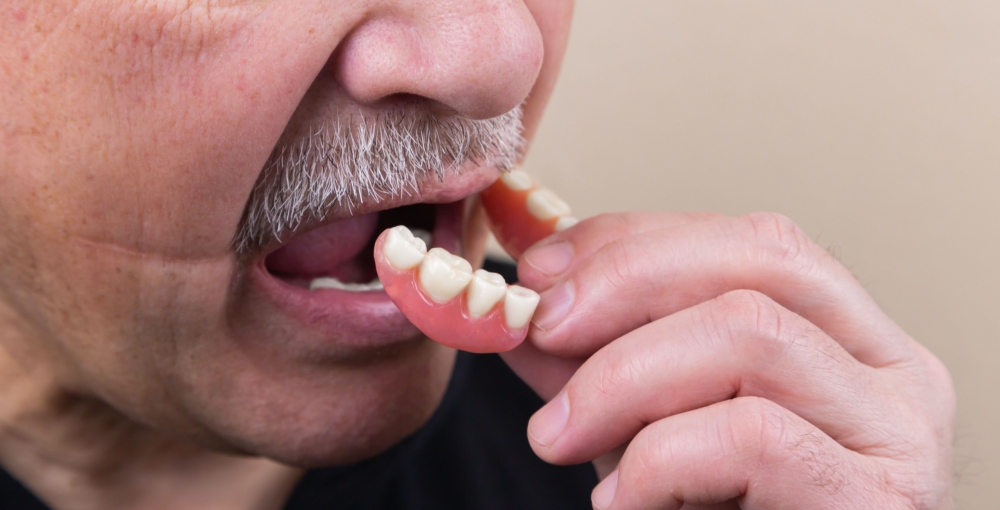 July 12, 2021
July 12, 2021
What Can I Do About My Missing Teeth?
Missing teeth? You’re not alone.
According to the American College of Prosthodontists, approximately 178 million people in the United States are missing at least one tooth. Studies also estimate that around 40 million people — 12 percent of the U.S. population — are missing all of their teeth. But, despite its commonality, missing teeth can be a physically and emotionally daunting experience for many.
Being dental professionals, we’ve seen the effects first-hand that missing teeth can cause our patients. There are a variety of reasons why someone may be missing teeth, including a lack of access to proper dental care, smoking, comorbidities associated with diabetes, arthritis, or high blood pressure.
If you’re someone with a missing tooth, have you had to retrain yourself so you can chew food more easily? Have missing teeth negatively affected your self esteem? Do you find yourself avoiding social situations or even going so far as to prevent yourself from smiling so that no one can see your missing teeth?
Below, you’ll find some of the options you have for correcting missing teeth.
What Are Dental Implants?
Dental implants can be used as a non-removable solution for those who have single or multiple missing teeth. Though some implant designs can differ, they have three distinct parts: an implant, an abutment, and a crown.
The implants are similar to a metal screw. The implant, typically made of titanium, is placed into the jawbone, and performs the function that a natural tooth’s roots would, anchoring the tooth in place.
The abutment acts as a connection between the implant and the crown, and is screwed in place into the implant. Abutments will vary in size to best complement the space available.
Lastly, the crown, or artificial tooth, is affixed to the abutment, replacing the missing tooth and giving the wearer a natural looking smile.
As part of the healing process, the jawbone will fuse with the implant, stabilizing and retaining the crown.
Not all people are appropriate candidates for dental implants. There must be appropriate bone size and density to accommodate the implant. Non-smokers and patients with generally good oral and overall health are usually favorable candidates.
What Are Partial Dentures?
Are Partial Dentures the Same As a Dental Bridge?
Partial dentures (a partial) and dental bridges can be used to replace missing teeth, but both have characteristics that make them unique.
A primary difference is that partials are removable and bridges are not. The partial denture consists of one or more artificial teeth that are connected to a base designed to mimic the appearance of a person’s gums.
Partial dentures are typically a viable option when the areas being filled by the new replacement teeth are adjacent to healthy natural teeth.
The dentures are removed during sleep and must be regularly cleaned in order to maintain good oral health. These devices are also good at preventing tooth movement by keeping natural teeth in place.
A dental bridge is designed to sit permanently in the mouth. This happens by attaching prepared teeth adjacent to the missing tooth or by connecting into dental implants.
Both dental bridges and partial dentures are customized to allow for function and esthetics.
What Are Complete Dentures?
As you might assume, complete dentures share in the same concept as a partial denture, but are designed to accommodate either the entire upper or lower jaw, or if necessary both.
Just like partial dentures and other removable dental appliances, keeping dentures clean is crucial not only to the wearer’s comfort, but also to prolonged oral health.
Want to learn more about what you can do about missing teeth? Contact Carter Park Dental today!
With every dental procedure we provide at Carter Park Dental, we take the time with our patients to help them fully understand how to take the best care possible of their new investment, how to get the most out of it, and, of course, answer any questions they might have about their new dental work.
Curious to learn more?
Have questions about implants, dentures, and implants?
Contact Carter Park Dental TODAY for your consultation!




